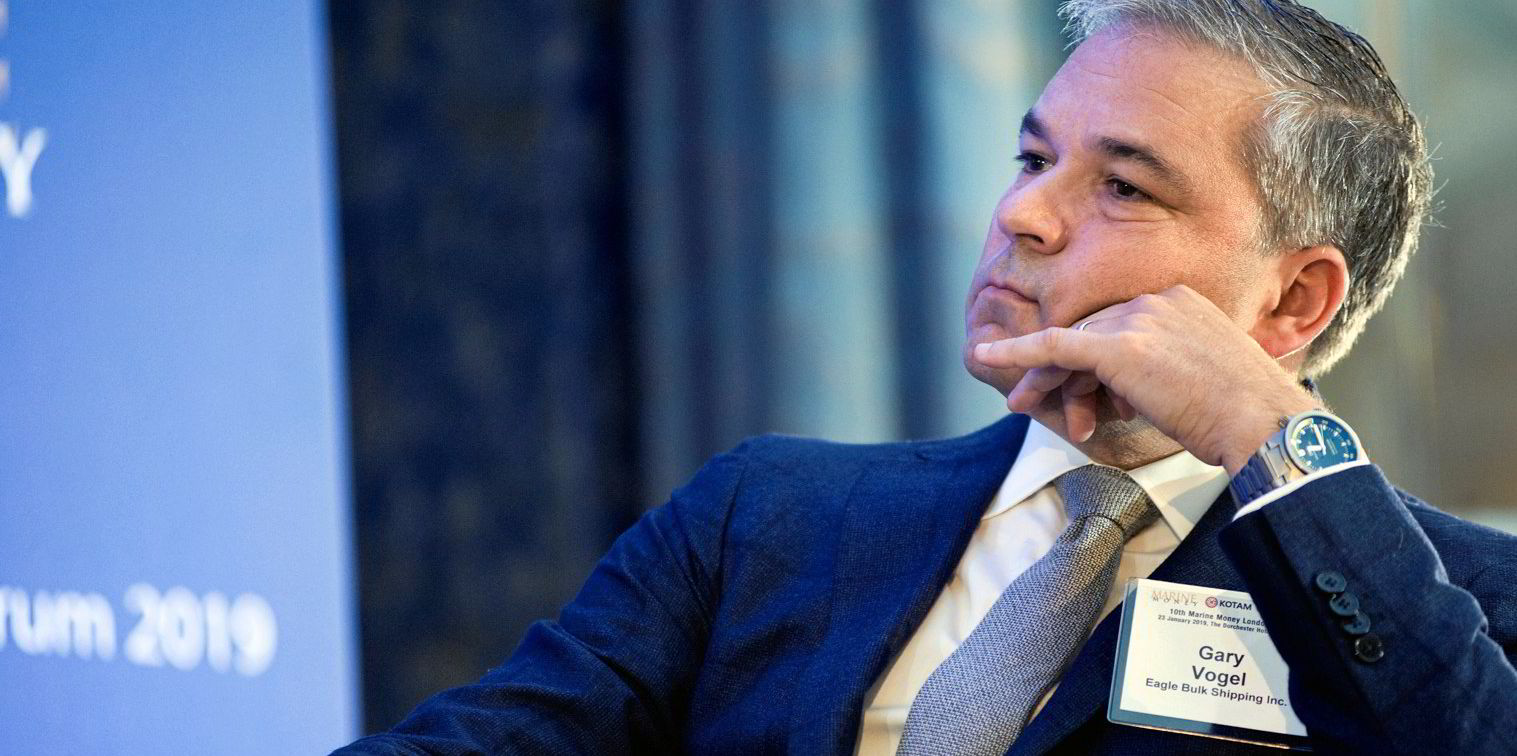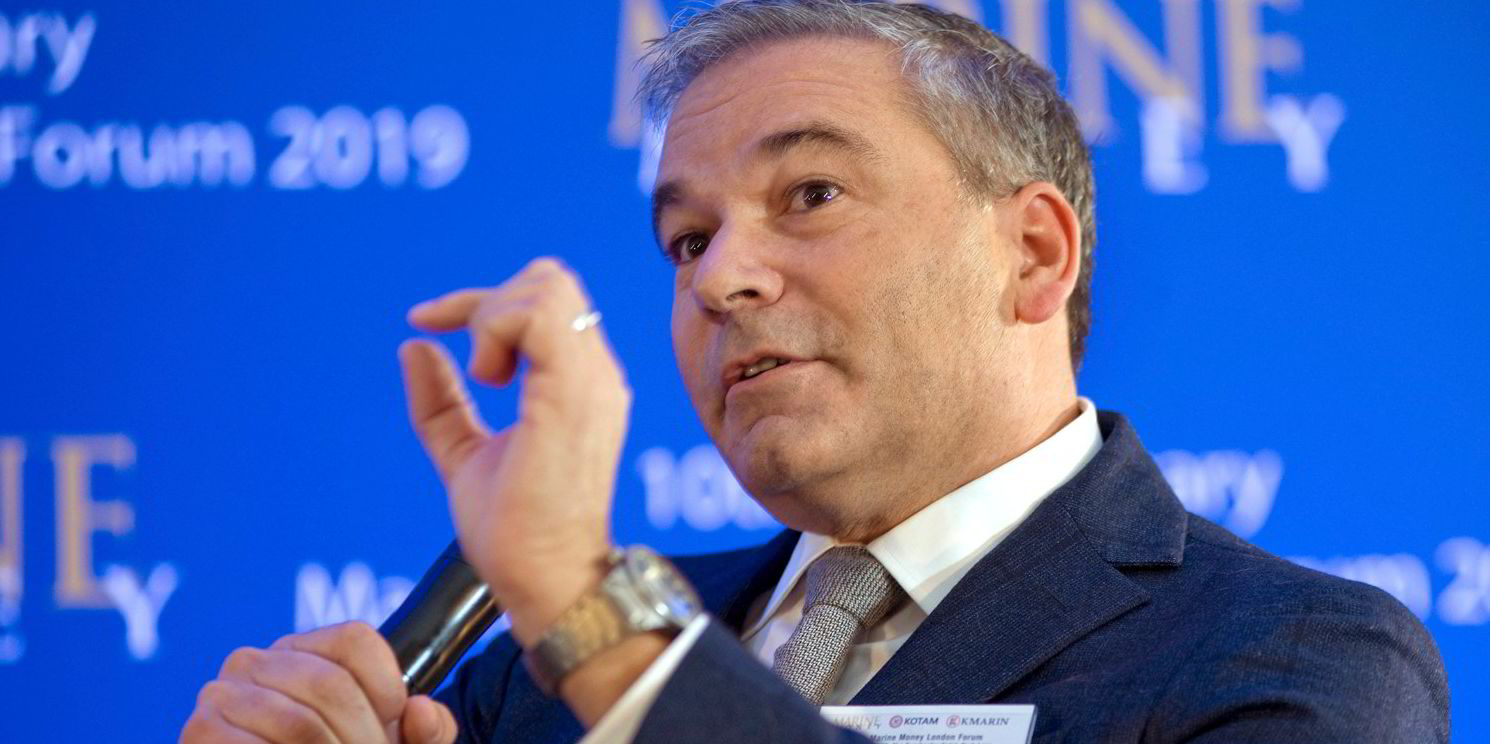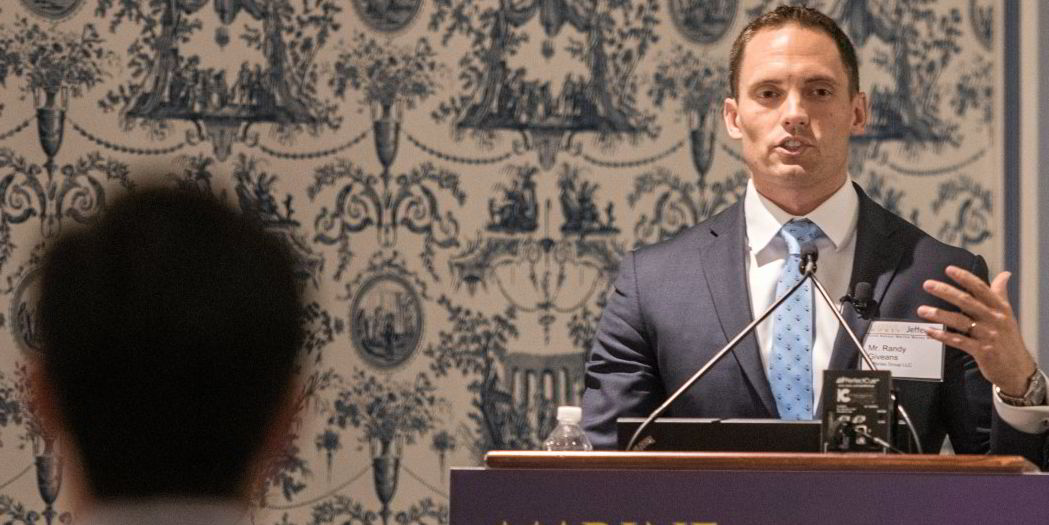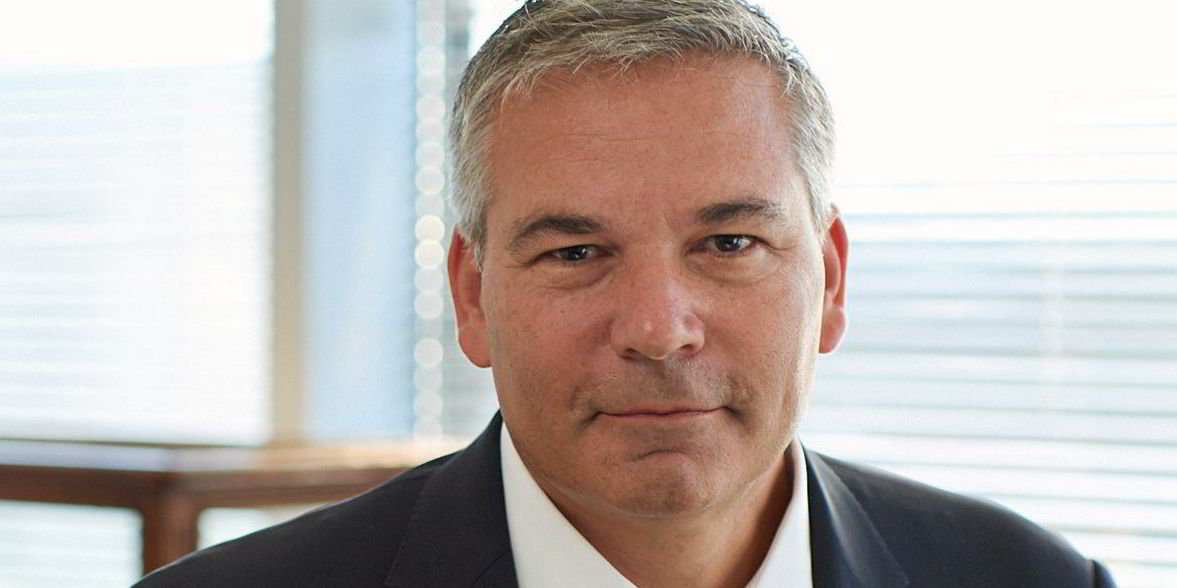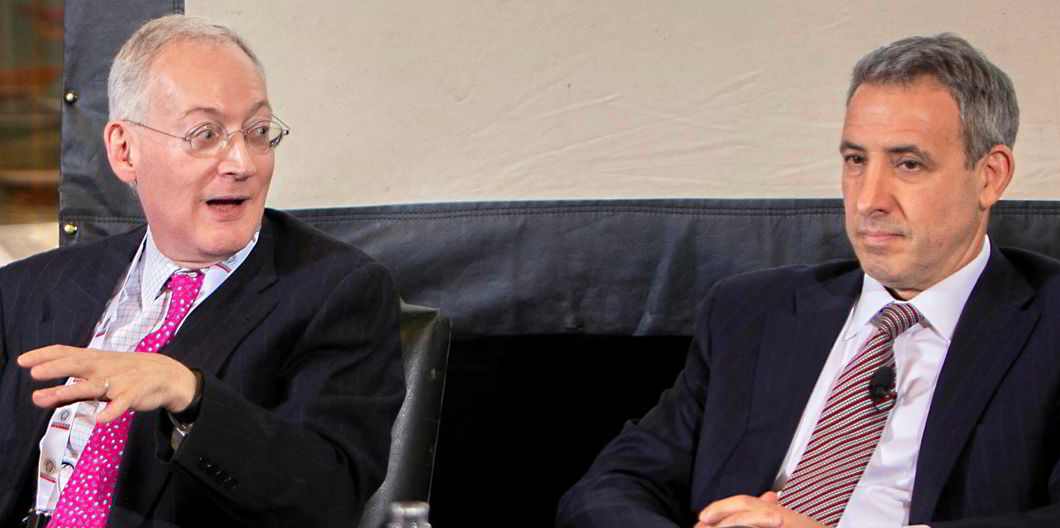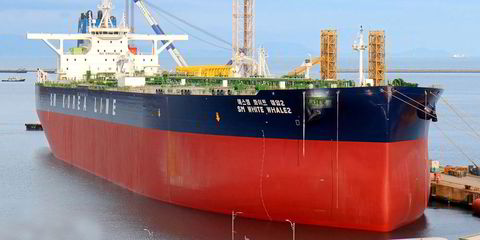Record results in the third quarter: check. Meaty initial dividend of $2 per share: check. Fleet renewal and expansion with a new debt facility: those boxes are ticked as well.
But one big challenge remains for New York-listed Eagle Bulk Shipping, and it took up a big part of the owner's otherwise celebratory earnings call on Friday.
What's up with the share price? And what does management intend to do about it?
Several analysts raised the question of how the Connecticut owner can deal with a significant trading discount to net asset value (NAV) now that it has achieved so many other milestones in the five-year tenure of chief executive Gary Vogel.
And perhaps there was the smallest of starts on Friday morning trading in New York as Eagle flew north of $40 per share again after closing at $39.71 on Thursday. But this is still down some 28% from a record high of $56.47 on 25 June.
As TradeWinds has reported, Eagle's challenge is part of a larger issue faced by public dry bulk owners, whose share prices dropped to an average 70% to 75% of NAV after trading at par or better during the summer.
Investors appear jittery about the future after a plunge in capesize rates from around $85,000 a day to less than $30,000, a drop in the Baltic Dry Index below 3,000 and uncertainty around Chinese steel production and the pace of global economic growth.
Valuations remain buoyant: for example, Eagle management estimated on Friday that nine bulkers acquired over the past year have appreciated by $80m in value.
While the $2 dividend Eagle is paying under its new policy, about 35% of net income, may start to get investor attention, the analyst crowd is making noise about buybacks of common shares and $114m in convertible bonds that mature in August 2024.
"It varies by analyst, but your NAV is about $70 per share," said J Mintzmyer of Value Investor's Edge, who is both an investor and stock researcher.
"With a 45% discount to NAV, it's just screaming – I look forward to further repurchases."
Plenty of positives

As part of its new $400 debt refinancing, Eagle did disclose a $50m share buyback authorisation, but has not disclosed any repurchases yet. It has been in a blackout period that prevents such buys ahead of earnings.
Mintzmyer also questioned what Eagle can do about the convertible notes, which have the potential to morph into 2.9m shares upon conversion. He observed that Eagle does not have a call provision to force redemption of the notes.
"We can buy them in the open market or make a formal proposal to the holders," Vogel responded.
Answering a question from Jefferies analyst Randy Giveans about the share price, Vogel referenced the recent buyback authorisation, adding: "We look every day at what we can do. Clearly we're aware of where we're trading."
He also told analyst Omar Nokta of Clarksons Platou Securities that there are pros and cons to buying in common shares versus the convertible notes.
"Buying in the converts doesn't take the float out of the current market in terms of shares availability," Vogel said. "But the convert is far less liquid. It's easier to buy common shares out of the market."
Stock price aside, there were plenty of positive notes from the call. After all, Eagle had just made more money in one quarter than it had ever made in any full year as a public company.
Despite the recent weakness and volatility in the freight market, Vogel said Eagle feels good about the current quarter.
The owner of 53 supramax and ultramax bulkers has booked 75% of operating days at $32,400 per day. This is up on the $29,088 figure in the third quarter, which was the strongest since 2008.
"Notwithstanding the pullback in rates, we are on track to exceed this quarter's performance in Q4," Vogel said.
Nokta projects that as well. He said in a client note that he expects Eagle to achieve overall time charter equivalent rates of $30,500 per day when the books close on the fourth quarter, yielding earnings per share of $6.94 and a dividend of $2.08.
